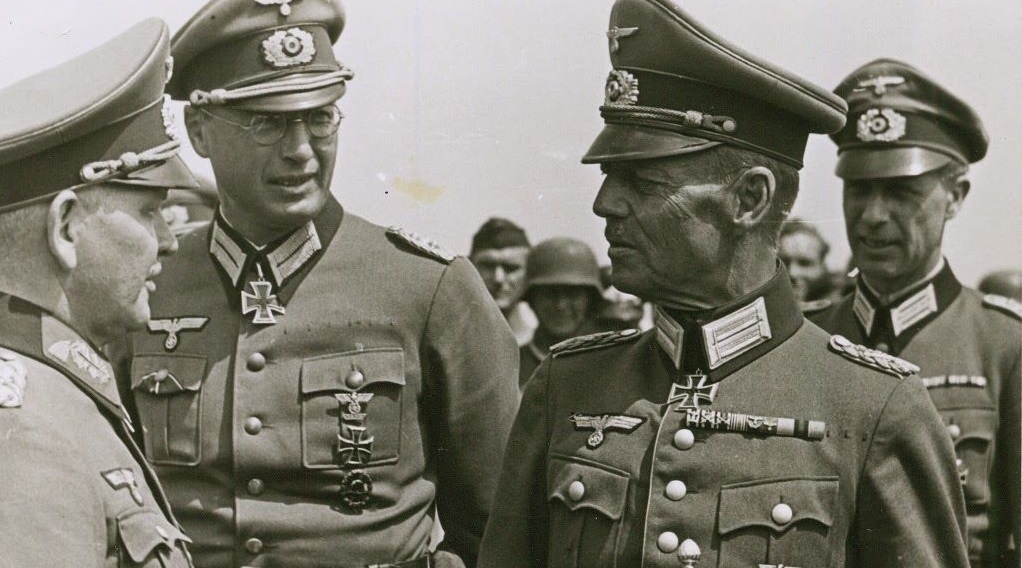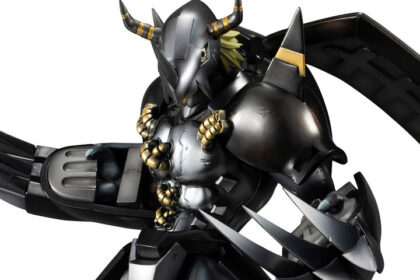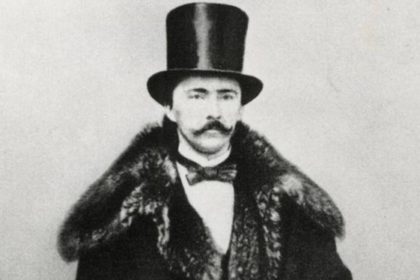Karl Rudolf Gerd von Rundstedt was a Field Marshal in the Wehrmacht of Nazi Germany during World War II. Born into a Prussian family with a long military tradition, Rundstedt entered the Prussian Army in 1892. Take a look below for 30 more bizarre and interesting facts about Gerd von Rundstedt.
1. During World War I, he served mainly as a staff officer.
2. In the inter-war years, he continued his military career, reaching the rank of Colonel General before retiring in 1938.
3. He was recalled at the beginning of World War II as commander of Army Group South in the invasion of Poland.
4. Rundstedt commanded Army Group A during the Battle of France, and was promoted to the rank of Field Marshal in 1940.
5. In the invasion of the Soviet Union, he commanded Army Group South, responsible for the largest encirclement in history, the Battle of Kiev, as well as the largest mass killing of the Holocaust to that date, at Babi Yar.
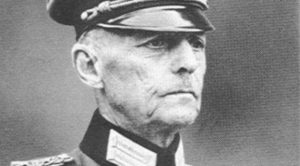
6. He was relieved of command in December 1941, but was recalled in 1942 and appointed Commander-in-Chief in the West.
7. He was dismissed after the German defeat in Normandy in July 1944, but was again recalled as Commander-in-Chief in the West in September, holding this post until his final dismissal by Adolf Hitler in March 1945.
8. Rundstedt was aware of the various plots to depose Hitler, but refused to support them.
9. After the war, he was charged with war crimes, but didn’t face trial due to his age and poor health. He was released in 1949 and died in 1953.
10. Rundstedt was born in Aschersleben, north of Halle in Prussia Saxony.
11. He was the oldest son of Gerd Arnold Konrad von Rundstedt, a cavalry officer who served in the Franco-Prussian War.
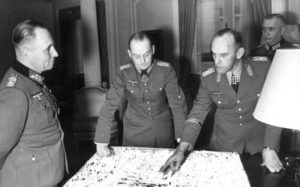
12. The Rundstedts were an old Junker family that traced its origins to the 12th century and classes as members of the Uradel, or old nobility, although they held no titles and weren’t wealthy.
13. Virtually all the Rundstedt men since the time of Frederick the Great had served in the Prussian Army.
14. Rundstedt’s mother, Adelheid Fischer, was of Huguenot descent.
15. He was the eldest of four brothers, all of whom became Army officers.
16. Rundstedt’s education followed the path ordained for Prussian military families: the junior cadet college at Diez, near Koblenz, then the military academy at Lichterfelde in Berlin.
17. Unable to meet the cost of joining a cavalry regiment, Rundstedt joined the 83rd Infantry Regiment in March 1892, as a cadet officer.
18. The 83rd Infantry Regiment was based at Kassel in Hesse-Kassel, which he came to regard as his home town and where he maintained a home until 1945.
19. He undertook more training at the military college at Hannover, before being commissioned as a lieutenant in June 1893.
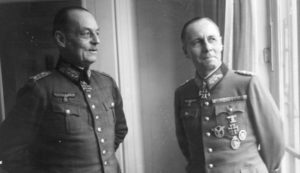
20. In 1896, he was made regimental adjutant, and in 1903 he was sent to the prestigious War Academy in Berlin for a three year staff officer training course.
21. He married Luise “Bila” von Goetz in January 1902 and their only child, Hans Gerd von Rundstedt, was born in January 1903.
22. Rundstedt joined the General Staff of the German Army in April 1907, serving there until July 1914, when he was appointed chief of operations at the 22nd Reserve Infantry Division.
23. In 1951, Rundstedt was granted a military pension by the West German government.
24. In the last years of his life, Rundstedt became a subject of increasing interest and was interviewed by various writers and historians.
25. His former chief of staff, Gunther Blumentritt, visited him frequently, and began work on an apologetic biography, which was published in 1952.
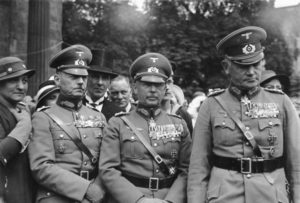
26. Rundstedt’s defense at his trial was that as a solider he had a duty to obey the orders of the legitimate government, whoever that was, and whatever the orders were.
27. On September 30, 1939, Rundstedt was given the Knight’s Cross as Generaloberst and Commander-in-Chief of Army Group South.
28. On July 1, 1944, he was given the 519th Oak Leaves as Generalfeldmarschall and Oberbefehlshaber West.
29. On February 18, 1945, he was given the 133rd Swords as Generalfeldmarschall and Oberbefehlshaber West.
30. On September 16, 1939, he was given the Clasp to the Iron Cross 2nd Class and on September 21, 1939, he was given the Clasp of the Iron Cross 1st Class.

